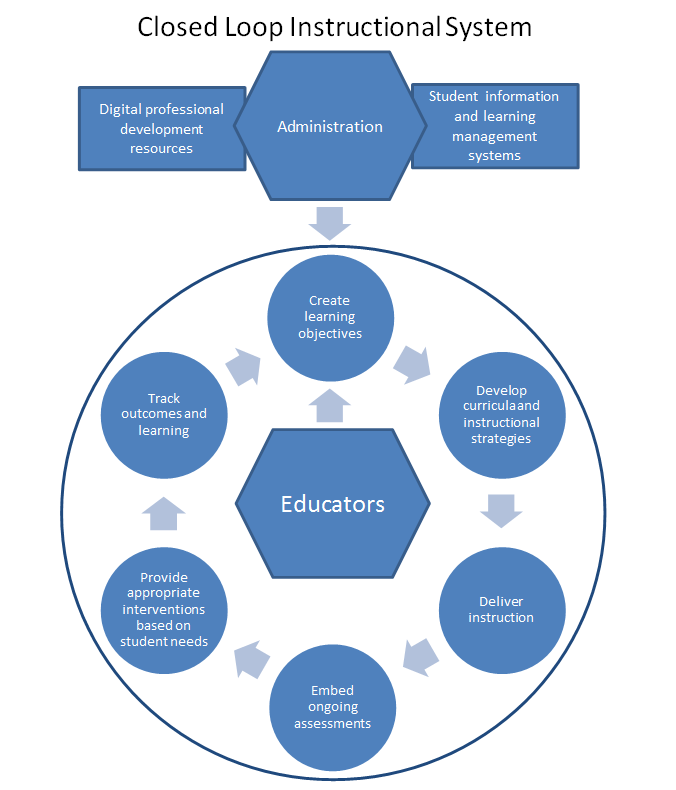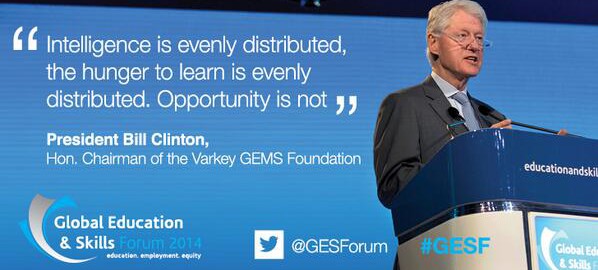The Global Education and Skills Forum (GESF) is held on an annual basis in Dubai, UAE, and brings together world political and business leaders, teachers, activists and researchers to discuss the global state of affairs in education.
The backdrop for this year’s conference is the 2015 New Vision for Education report which addresses gaps in education systems through studying nearly 100 countries around the world and stresses that students, in addition to language arts, science and math skills, require skills in “critical thinking, problem-solving, persistence, collaboration and curiosity” in order to thrive in a rapidly changing world more and more dependent on the application of new technology.
The report details “the 16 most critical 21st century skills” that learners must possess in order to participate in the evolving landscape, separated into three categories, foundational literacies, competencies and character qualities.
Foundational Literacies:
- Literacy
- Numeracy
- Scientific Literacy
- Information and Communication Technology Literacy
- Financial Literacy
- Cultural and Civic Literacy
Competencies:
- Critical thinking/Problem solving
- Creativity
- Communication
- Collaboration
Character Qualities:
- Curiosity
- Initiative
- Persistence/grit
- Adaptability
- Leadership
- Social and cultural awareness
The report indicates that many of these skills are not being met, both in the developed and developing world and as a result, “many students are not getting the education they need to prosper in the 21st century and countries are not finding enough of the skilled workers they need to compete.”
The GESF, which is organized by the Varkey Foundation, addressed at the 2015 conference, themed “education, equity and employment,” how these gaps could be filled. It is the belief of the World Economic Forum that conferences such as GESF help major stakeholders decide on a consistent plan to solve world educational problems and do more to “align indicators, ensure greater global coverage for key skills, establish clear baselines for performance integrated with existing local assessments, standardize the definition and measurement of higher-order skills across cultures and develop assessments directed specifically towards competencies and character qualities.”
The prevalence of discussion about educational technology at the conference is indicative of the rapidly evolving inter connectivity of questions of learning and technology. However, technology is neither intended to replace teachers, nor to act as a replacement for a traditional tool that doesn’t and shouldn’t need to be replaced. The World Economic Forum report places importance on what is known as a closed loop system that “requires an integrated and connected set of steps to produce results.”
Simply put, teachers are more effective when their approach is to employ instructional technologies personalized and adaptive to student needs. On the other hand, administrators should employ technological resources that promote “human capital development and strengthening management systems.” The following chart indicates the closed loop system where teaching is enhanced by instructional technology decided by the educator, and supported by resources provided by the administration.
The significant gaps in educational development across the world are undeniable, and the need to come up with creative, technically savvy, effective solutions is clearly highlighted in the vision and mission of Ednastics. As educational researchers, practitioners and technologists 100% committed to increasing the quality and accessibility of education for a more prosperous and peaceful world, we are prepared to help school, institutions and governments come up with solutions to overcome these challenging obstacles.

